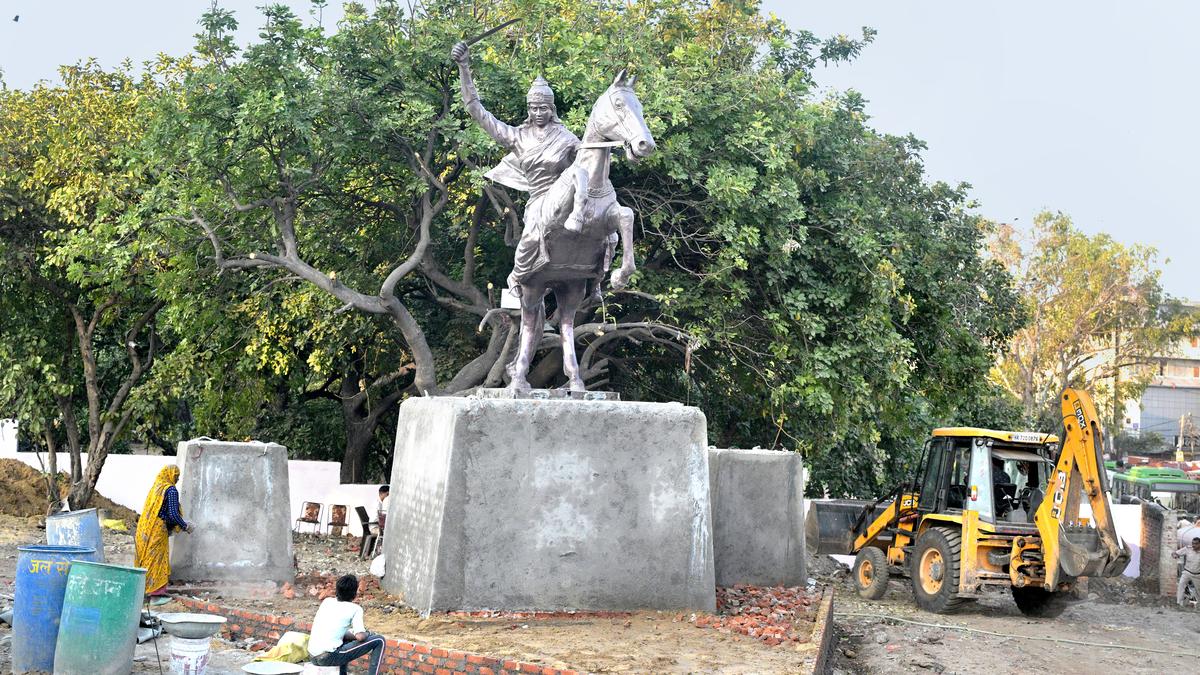
After four years and two court battles, the Queen of Jhansi finds a new home in Delhi
The Hindu
Controversial relocation of Rani Lakshmi Bai statue in Delhi sparks protests and legal battles, ending in resolution.
It was meant to be an ordinary relocation exercise, the likes of which are not infrequent and elicit little public attention in metropolitan cities. The execution, however, was a totally different story.
In December 2020, the North Delhi Municipal Corporation decided to move the statue of a freedom fighter from a busy roundabout in central Delhi to a place with much less traffic movement. After a couple of proposals were turned down, the civic body in 2021 decided to instal it a few km away in an open space next to an Idgah. Then, the plan fell through the cracks, soon after which the civic body itself, along with two other municipal bodies, got merged into a unified Municipal Corporation of Delhi (MCD).
Three years later, the municipality decided to revive the plan. Its officials went straight to Sadar Bazar’s Shahi Idgah Park and, without informing its office-bearers, started digging up the ground to lay the foundation for the statue of Rani Lakshmi Bai. It prompted a protest by the area’s residents. The police had to be called in. The Idgah’s management committee approached the Delhi High Court against the statue’s relocation. The case was heard by two separate Benches, and the Idgah committee’s objections were overruled both times.
The statue of the Queen of Jhansi on horseback with a sword in one hand was finally placed in the park on October 3, nearly four years after the plan was first mooted. Construction work in the area, located close to a road named after the nineteenth century freedom fighter, continues amid heavy police presence.
However, the panel members of the centuries-old Idgah say that the manner in which the relocation exercise was conducted led to unnecessary controversy and that their objections were misconstrued.
“Our plea was against the way the agency was trying to impose its will upon us and summarily shift the statue of a national icon in a neglected part of an open field. Had the authorities consulted us, we would have suggested a better location in the park,” said Mohammad Salman, general secretary of the Idgah managing committee.
He added, “Rani Lakshmi Bai fought for our country. The least the agencies could have done was to coordinate with us to find an accessible spot that would allow people to come and honour her memory.”













